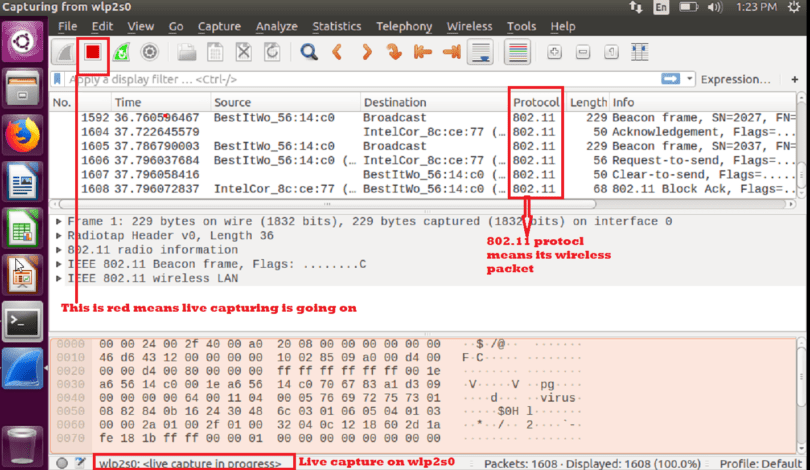
While not strictly your question, I prefer to do filtering in the capture filter (double click the interface name in the capture-options dialog), whose syntax is exactly like tcpdump. Tcp.dstport != 80 suffers from a similar problem having tcp.dstport != 80 turns out to mean "match ONLY tcp traffic, but only tcp that is not dstport = 80" Here's a complete example to filter http as well: not ip.addr = 192.168.5.22 and not tcp.dstport = 80 For example, when connecting to 192.168.5.254 from 192.168.5.22, ip.addr != 192.168.5.22 doesn't match *.22 IP, it matches *.254 and thus the packet matches the filter expression. It might seem more logical to write it as ip.addr != 192.168.5.22, but while that's a valid expression, it will match the other end of the connection as not being the specific ip and still be true. You could also write it like so: not (ip.addr = 192.168.5.22)

With the negative match like you have, you need both conditions to be true to filter off your IP, thus and instead of or.


 0 kommentar(er)
0 kommentar(er)
